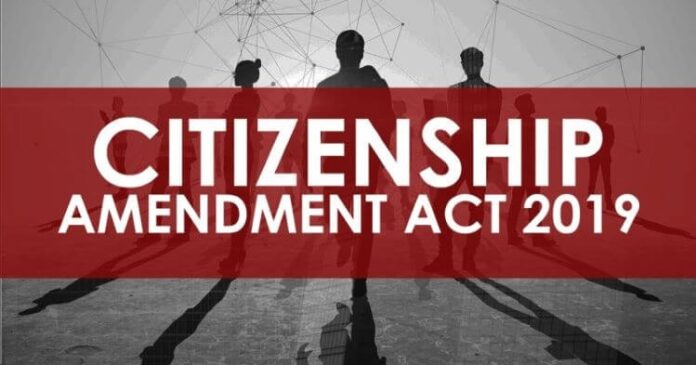The Central government issuing the Citizenship (Amendment) Rules, 2024 , the controversial Citizenship Amendment Act (CAA), 2019 has gone into effect.
The law and accompanying Rules, established by Parliament more than four years ago, aim to award citizenship to Hindus, Jains, Christians, Sikhs, Buddhists, Parsis, and others who arrived in India on or before December 31, 2014, from Bangladesh, Pakistan, and Afghanistan.
In order to define which religious groups will be eligible for citizenship benefits, the CAA was changed.
According to the modification, those who are part of the aforementioned communities and countries and who have been granted exemptions by the Central government under the Foreigners Act of 1946 or the Passport (Entry into India) Act of 1920, will not be classified as “illegal migrants.”
As a result, under the 1955 Act, these individuals will be qualified to petition for citizenship.
The bill sparked widespread demonstrations across the nation and is presently being challenged in the Indian Supreme Court. A closer examination of the notifiable Rules indicates the government’s intended method of law enforcement.
Rule 10A: Citizenship applications
Rule 10A addresses applications for citizenship granted by naturalisation or registration made by eligible individuals. The Regulation additionally delineates standards for applicants based on their place of origin and their connections to those who hold Indian citizenship. Persons of Indian origin, those married to Indian citizens, minor children of Indian citizens, those whose parents are registered as Indian citizens, those whose parents (either) were citizens of Independent India, and those who hold an Overseas Citizen of India card must meet certain requirements.
With a few exceptions, the Rule requires that the desirable requirements under each of the clauses be fulfilled in all such circumstances and in compliance with the Rules.
Proficiency in the Indian language for those pursuing naturalisation as a path to citizenship
when applying for naturalisation, a person must additionally certify that they are proficient in one of the languages included in the Eighth Schedule of the Constitution, which covers the official languages of India.
According to the Rule, “the applicant shall be deemed to have adequate knowledge of the language concerned if he is able to speak, read, or write that language.”
The Rule further requires a declaration that no future claim to any other citizenship will be made, as well as the irreversible renunciation of any such citizenship.
Rule 11A: Whom and how to apply for citizenship
This Rule addresses the authority required of qualified individuals to submit a citizenship application.
As instructed by the central government, the application must be sent in “electronic form” to the “Empowered Committee” via a “district-level committee.”
An electronic acknowledgement will be created upon submission. The documents will be verified by the district-level committee, which will be led by an officer. They will also administer the legally mandated “oath of allegiance” and transmit the completed forms to the Empowered Committee.
Composition of Committees
The Director (Census Operations) of the relevant state or union territory will lead the Empowered Committee in states and union territories. It will also consist of the following:
i) an employee of the Indian government who has at least the position of Deputy Secretary in the Subsidiary Intelligence Bureau;
ii) Regional Registration Officer with jurisdiction over foreign nationals;
iii) The State Informatics Officer of the relevant State or Union Territory’s National Informatics Centre;
iv) A postal officer nominated by the post master general who holds a rank higher than that of deputy secretary to the Indian government, or the post master general of the State or Union Territory in question.
In addition, the following people have been identified as Empowered Committee “invitees”: a delegate from the relevant State Government or Union Territory’s office of the Principal Secretary (Home) or Additional Chief Secretary (Home) and a delegate from the Divisional Railway Manager of Railways, who oversees the jurisdiction.
Rule 13A: The Empowered Committee’s Function
After carefully reviewing all supporting documentation and concluding that all requirements have been met, the Empowered Committee has the authority to award citizenship to qualified candidates.
The Committee may give Indian citizenship to the “applicant is a fit and proper person to be registered or naturalised” after determining that they are.
The individual will receive a registration certificate signed by the chairman of the Committee upon being granted citizenship. Likewise, individuals who have obtained citizenship by naturalisation will receive a certificate of naturalisation.
The Ministry of Home Affairs and the security agency must have access to the register that this Committee keeps on file of information about those who are registered or who have naturalised as citizens of India.






